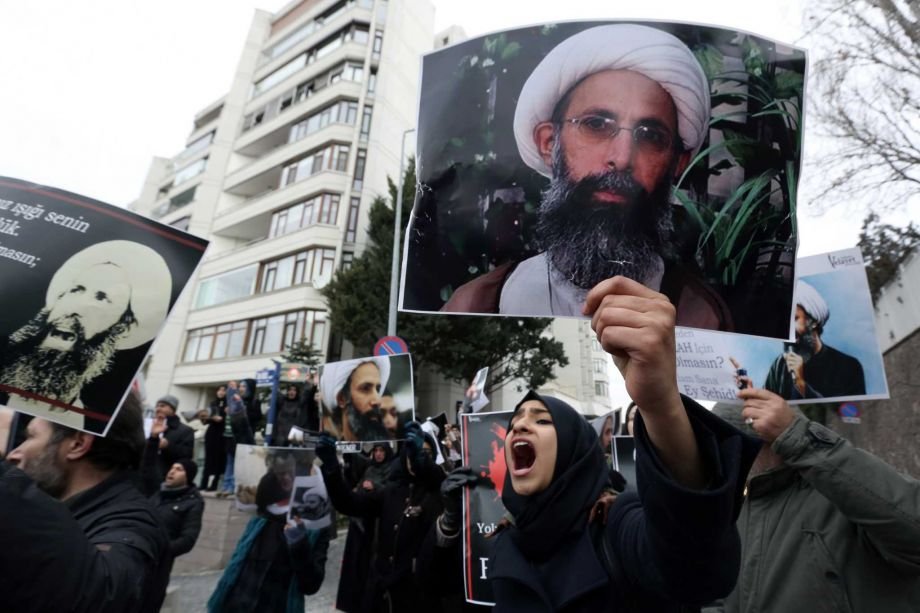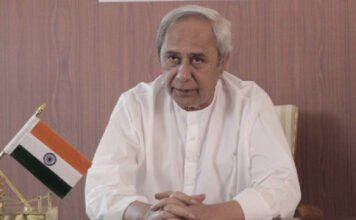Abu Dhabi, Jan 4: Saudi Arabia on Sunday severed diplomatic relations with Shiite powerhouse Iran amid escalating tensions over the Sunni kingdom’s execution of a prominent Shiite cleric.
The move came hours after protesters stormed and set fire to the Saudi Embassy in Tehran and followed harsh criticism by Iran’s top leader of the Saudis’ execution of Sheikh Nimr al-Nimr.
Saudi Foreign Minister Adel al-Jubeir said Iranian diplomatic personnel had 48 hours to leave his country and all Saudi diplomatic personnel in Iran had been called home.
The mass execution of al-Nimr and 46 others — the largest carried out by Saudi Arabia in three and a half decades — laid bare the sectarian divisions gripping the region as demonstrators took to the streets from Bahrain to Pakistan in protest.
It also illustrated the kingdom’s new aggressiveness under King Salman. During his reign, Saudi Arabia has led a coalition fighting Shiite rebels in Yemen and staunchly opposed regional Shiite power Iran, even as Tehran struck a nuclear deal with world powers.
Iran’s supreme leader, Ayatollah Ali Khamenei, warned Saudi Arabia on Sunday of “divine revenge” over al-Nimr’s death, while Riyadh accused Tehran of supporting “terrorism” in a war of words that threatened to escalate even as the U.S. and the European Union sought to calm the region.
Al-Jubeir told a news conference in Riyadh that the Iranian regime has “a long record of violations of foreign diplomatic missions,” dating back to the occupation of the U.S. Embassy in 1979, and such incidents constitute “a flagrant violation of all international agreements,” according to the official Saudi Press Agency.
He said Iran’s “hostile policy” was aimed “at destabilizing the region’s security,” accusing Tehran of smuggling weapons and explosives and planting terrorist cells in the kingdom and other countries in the region. He vowed that Saudi Arabia will not allow Iran “to undermine our security.”
“The history of Iran is full of negative and hostile interference in Arab countries, always accompanied with subversion, demolition and killing of innocent souls,” al-Jubeir said, just before announcing the severing of diplomatic relations.
Al-Nimr was a central figure in Arab Spring-inspired protests by Saudi Arabia’s Shiite minority until his arrest in 2012. He was convicted of terrorism charges but denied advocating violence.
On Saturday, Saudi Arabia put al-Nimr and three other Shiite dissidents to death, along with a number of al-Qaida militants. Al-Nimr’s execution drew protests from Shiites around the world, who backed his call for reform and wider political freedom for their sect.
While the split between Sunnis and Shiites dates back to the early days of Islam and disagreements over the successor to Prophet Muhammad, those divisions have only grown as they intertwine with regional politics, with both Iran and Saudi Arabia vying to be the Mideast’s top power.
Iran accuses Saudi Arabia of supporting terrorism in part because it backs Syrian rebel groups fighting to oust its embattled ally, President Bashar Assad. Riyadh points to Iran’s backing of the Lebanese Hezbollah and other Shiite militant groups in the region as a sign of its support for terrorism. Iran also has backed Shiite rebels in Yemen known as Houthis.
Khamenei, the Iranian supreme leader, condemned al-Nimr’s execution, sayingSunday the cleric “neither invited people to take up arms nor hatched covert plots. The only thing he did was public criticism.”
Iran’s powerful Revolutionary Guard said Saudi Arabia’s “medieval act of savagery” would lead to the “downfall” of the country’s monarchy.
Saudi Arabia’s Foreign Ministry said that by condemning the execution, Iran had “revealed its true face represented in support for terrorism.”
In Tehran, a protest outside the Saudi Embassy early Sunday quickly grew violent as protesters threw stones and gasoline bombs at the embassy, setting part of the building ablaze, according to Gen. Hossein Sajedinia, the country’s top police official, the semi-official Tasnim news agency reported.
Forty people were arrested and investigators were pursuing other suspects, Tehran prosecutor Abbas Jafari Dowlatabadi said, according to the semi-official ISNA news agency.
Iranian President Hassan Rouhani condemned Saudi Arabia’s execution of al-Nimr, but also branded those who attacked the Saudi Embassy as “extremists.”



























